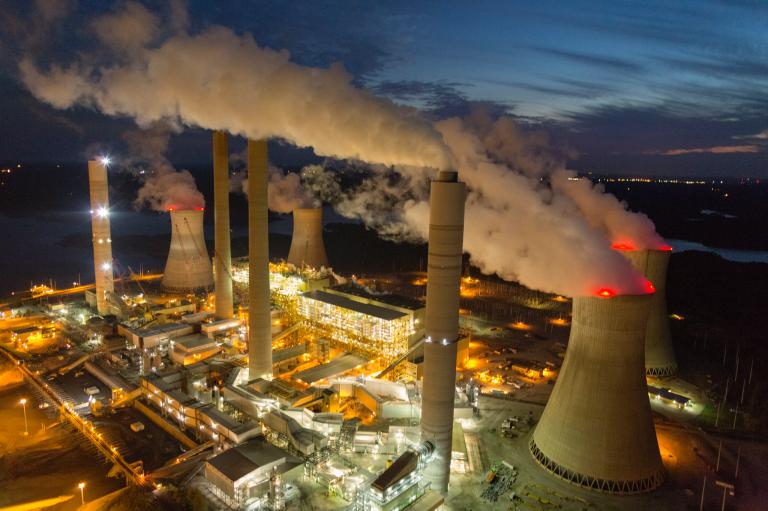- FG Approves PPA for $550m, 550MW Ondo Power Plant
The federal government thursday gave its approval to the Power Purchase Agreement (PPA) between the Nigerian Bulk Electricity Trading Company Plc (NBET) and Kingline Power Limited for the construction of its 550 megawatts (MW) Ondo open cycle independent power project (IPP).
The government approval of the project’s PPA was made known in Abuja when the NBET and Kingline signed the terms in the agreement before the Minister of Power, Works and Housing, Mr. Babatunde Fashola.
With the final signing of the PPA by the Managing Director of NBET, Dr. Marilyn Amobi, and Chief Executive Officer of Kingline, Mr. Sean Kim, Kingline indicated that it would now move to achieve a financial closure on the project within quarter three (Q3) of 2018, and subsequently commence construction.
Amobi, in her remarks, stated that the PPA was procured within the least cost development plan of the NBET, and that it had gone through the regulatory processes as well as a review by the Bureau of Public Procurement (BPP), and legal advice, from the office of the Attorney General of the Federation and Minister of Justice.
She explained that Kingline would be expected by the government to from this, achieve a financial closure shortly and construct the plants for power generation to the grid.
Similarly, Kim noted that within the period it initiated the PPA with the NBET in 2016, it had gone on to execute an Engineering Procurement Contract (EPC) with Hyundai Engineering, in addition to securing other contracts relevant to the construction of the plant within 24 months.
He also said the company has so far raised up to $150 million worth of equity for the project, and that its debt financing would be anchored by development financial institutions and export credit agencies being arranged by Standard Chartered Bank.
He stated: “We ave worked hard to keep our project financing at very competitive level. We are achieving 550 megawatts with $550 million in all project costs. That is a $1 million per megawatts and which is substantially lower than other projects. We are doing this while not sacrificing quality, that is why we are using GE turbines. What we hope to achieve is to become the reference project for Nigeria’s power sector.”
In his remarks Fashola, explained that the signing of the PPA was indication that Nigeria’s power sector was still attractive to investors across the globe.
The minister added that the participation of Ondo State in the project equally showed that state governments in the country can invest in the power sector uninhibited.
Meanwhile, the Transmission Company of Nigeria (TCN) had disclosed that it would get about €25 million grant from the European Union (EU) to support its evaluation of solar power lPPs in the country.
TCN also stated during a routine tour of its substations in Abuja and parts of Niger State, that it was working to achieve a national peak power transmission of 6,000MW within the first parts of 2018.
A document shared by the transmission company during the tour stated that TCN had within 2017, entered into collaboration with several partners to reposition it for better service delivery.
It listed some of the partnerships it signed within this period to include the one with Agip and Nigerian National Petroleum Corporation (NNPC) joint venture in respect of towers 94 and 98 on Okpai-Onitsha Direct Circuit Line and provision of Geographic Information System for it.
“Collaboration with Japan government on capacitor banks in Apo and Keffi substations and the rehabilitation of Apapa, Akangba and Isolo substations. Discussions are ongoing with government of Japan to rehabilitate Ikeja West and Ota substations. EU has pledged to provide €25 million grant to support TCN on solar lPPs evaluation,” it added in the document.
The company equally noted that with its works and investments made by the government in the transmission network in 2017, it would unfair to refer to it as the weakest link in the country’s power sector, adding that it had set itself up to become one of the best electricity transmission companies around the world.

 Naira3 weeks ago
Naira3 weeks ago
 News4 weeks ago
News4 weeks ago
 Naira4 weeks ago
Naira4 weeks ago
 Jobs3 weeks ago
Jobs3 weeks ago
 Travel3 weeks ago
Travel3 weeks ago
 Naira3 weeks ago
Naira3 weeks ago
 Naira3 weeks ago
Naira3 weeks ago
 Investment4 weeks ago
Investment4 weeks ago






























